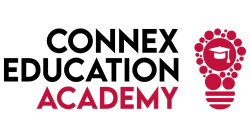Essential Skills for Success
Functional skills in Maths and English are vital for academic and professional success in the UK. Maths functional skills involve practical numeracy and data handling. English functional skills focus on strong communication abilities.
Qualifications in these areas enhance employability and open doors to further education and career opportunities.
Key Takeaways:
Functional skills like English, Maths, and ICT enhance employability, job performance, and career growth, making candidates more competitive in the job market.
Apart from professional benefits, functional skills improve daily life by enhancing practical abilities such as financial management, communication, and problem-solving, thereby increasing confidence and adaptability in various life scenarios.
Functional skills qualifications facilitate further education and career advancement, with a Level 2 qualification being equivalent to a GCSE pass, and are valued by both higher education institutions and apprenticeship programmes.
Enhance your career, enrich your daily life, and unlock new opportunities.
Here, we reveal the top 5 reasons why you should study functional skills, offering a straightforward guide to the pivotal roles these skills play in navigating the modern world and securing your success.

1. Unlocking Opportunities in the Job Market
It’s no secret that the job market is highly competitive. With numerous candidates vying for the same positions, standing out can be a daunting task. That’s where functional skills qualifications come into play.
Moreover, these skills are not confined to the realm of academia. They are the cornerstone of apprenticeship programmes, highlighting their importance and utility in the job market. Functional skills go beyond basic literacy and numeracy, enhancing employability by cultivating competencies in communication skills, problem-solving, and organization – integral skills for effective performance in the modern workplace.
With these qualifications in your arsenal, you are better equipped to navigate the workplace. They can significantly improve work performance and productivity, underpinning their value in fostering career growth. In essence, developing functional skills is a strategic move that can open doors to new job opportunities and enable you to progress in your chosen field.
2. Enhancing Daily Life and Practical Skills
Functional skills are more than just a stepping stone for career advancement. They are crucial for personal endeavours, enabling individuals to handle tasks that permeate everyday life. From problem-solving to budgeting and understanding data, these skills equip you with the tools to navigate daily life more efficiently. For example, you will use mathematical skills when doing the following:
Splitting the bill
Setting a monthly budget
Comparing product prices
Timekeeping
However, the benefits of functional skills go beyond just acquiring essential abilities. These courses also foster initiative, perseverance, and the ability to thoughtfully reflect when faced with complex tasks. As you strengthen these skills, your confidence grows, which can be beneficial in various life situations, not limited to professional settings.

3. Further Education and Career Progression
Functional skills and qualifications are not just a ticket to better job prospects. They are also a gateway to further education and career progression. A Level 2 qualification in functional skills is considered equivalent to a GCSE pass at grades A*-C or a grade 4/C in the new/old grading system.
This recognition extends to higher education establishments. Many universities accept functional skills qualifications as part of their entry criteria, demonstrating their value for further academic progress. These qualifications also align with vocational training, as apprenticeship programmes require a Level 2 qualification in Maths functional skills level, which can be achieved through English and Maths courses.
The 2019 reforms further enhanced the relevance and recognition of Functional Skills Qualifications (FSQs), improving their value in the labour market and contributing to lasting positive effects on learners’ confidence and academic success.
Whether you’re looking to advance your career or pursue further study, functional skills qualifications can help you achieve your goals.
4. Flexibility and Adaptability of Learning
One of the key advantages of functional skills courses is their flexibility. These courses can be accessed through in-person classes or online courses, providing learners with the option to choose a format that best fits their lifestyle and learning preferences.
The adaptability of online courses in functional skills allows learners to tailor their study schedule around personal and professional commitments, enabling them to learn at their own pace. This flexibility extends beyond just scheduling. The courses include practical action plans and reflection exercises that equip learners to apply adaptability and flexibility skills in their personal and professional lives.
This level of flexibility cannot be offered in traditional learning environments. So, if you work full-time or have children to look after, our online Functional Skills courses are ideally suited. The courses we offer include:
Upon successful completion, participants receive a certificate, which can be showcased on professional networking platforms like LinkedIn to enhance their career profiles. The blend of virtual and real-world learning allows learners to understand and apply what they learn directly to real-world scenarios, enhancing both learning outcomes and practical skill application.
These flexible learning options, including maths courses, are complemented by additional benefits such as fast-track courses and fully-funded opportunities for eligible learners, making Functional Skills courses accessible and applicable to career advancement.
5. Building Confidence and Independence
Functional skills are more than just practical tools for daily life and work. They are the building blocks of a successful career, equipping individuals with essential critical tools for thriving in diverse roles. A functional skills course, such as a functional skills English course, can be an excellent way to develop these abilities and achieve a functional skills level necessary for success.
Developing these skills doesn’t just improve your ability to perform tasks efficiently. It also boosts your confidence and independence. Apprentices who polish their functional skills are better positioned to tackle challenges in their roles, boosting their confidence and independence at work.
Summary
Getting qualified in Functional Skills English, Functional Skills Maths, and Functional Skills ICT will help you achieve academic and career goals, but it can do so much more. From unlocking job opportunities to enhancing daily life skills, facilitating further education and career progression, and building confidence and independence, these skills are crucial for thriving in the modern world. With their flexibility and adaptability, functional skills courses ensure that learners can acquire these skills in a manner that suits their lifestyles and preferences.
Start Studying Functional Skills Today!
Connex Academy are proud to partner with the National Extension College to offer you this learning opportunity. All students will have access to the learning materials for both the Level 1 and Level 2 courses, as you are enrolling on Level 2 that included below.
These courses give you the skills required for your personal and professional lives, opening doors to further education and career opportunities.
Whether you are keen to study Functional Skills Level 2 Maths or Functional Skills Level 2 English, you can start learning today! As soon as you enrol, you’re able to begin making your way through the online course at your own pace.
Frequently Asked Questions
Functional skills are crucial abilities in English and mathematics, including literacy, numeracy, and ICT skills, essential for personal and professional success.
Improving your functional skills can enhance your job prospects by demonstrating essential abilities valued by employers, such as literacy, numeracy, and ICT skills, as well as fostering competencies in communication, problem-solving, and organisation. This can make you a more attractive candidate for potential employers.
Developing functional skills can enhance daily life by helping individuals solve problems, manage budgets, and understand data, while also promoting qualities like initiative and perseverance. These skills can be especially valuable when dealing with complex tasks and challenges.
Yes, functional skills qualifications are recognised by many universities as part of their entry criteria and are considered equivalent to a GCSE pass.
Yes, functional skills can boost confidence and independence, especially in the workplace, by equipping individuals with essential tools for thriving in diverse roles.
Don’t forget to check out our ‘After The Bell’ podcast, which you can listen to on a weekly basis on Spotify or Apple Podcasts.
If you would like any more information, please do not hesitate to contact us by email at [email protected] or call 01253 543 660.

